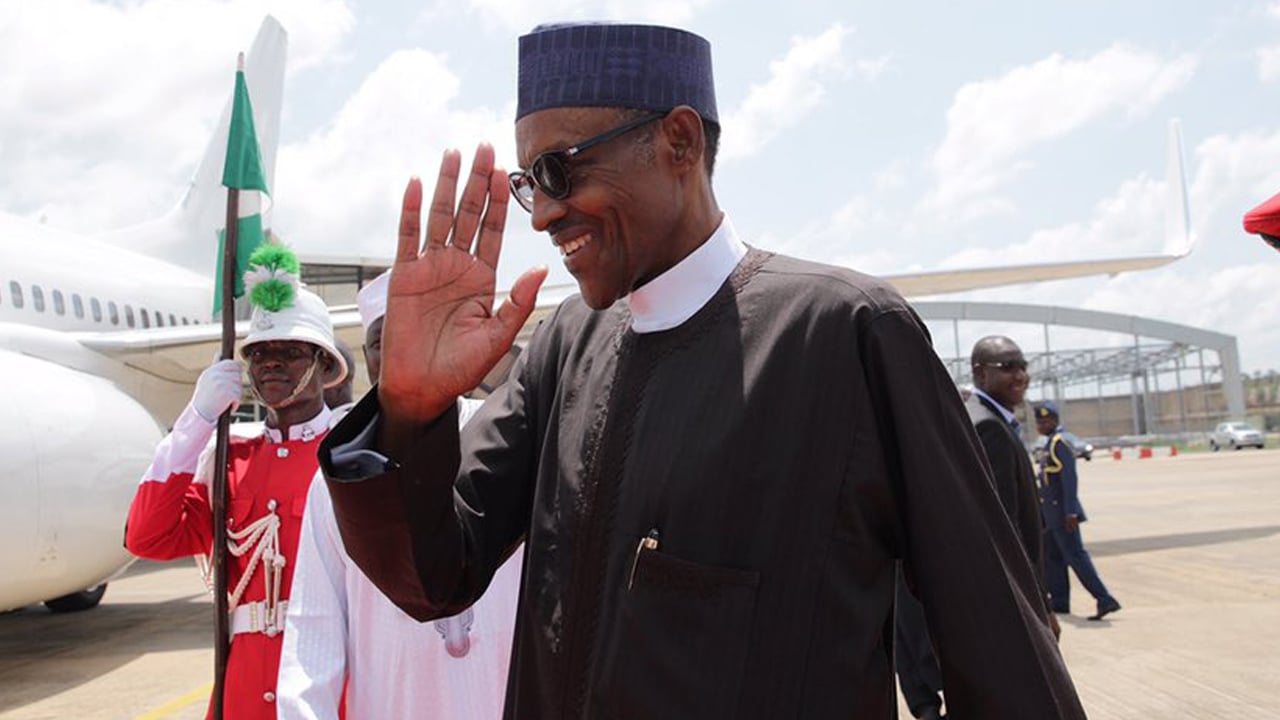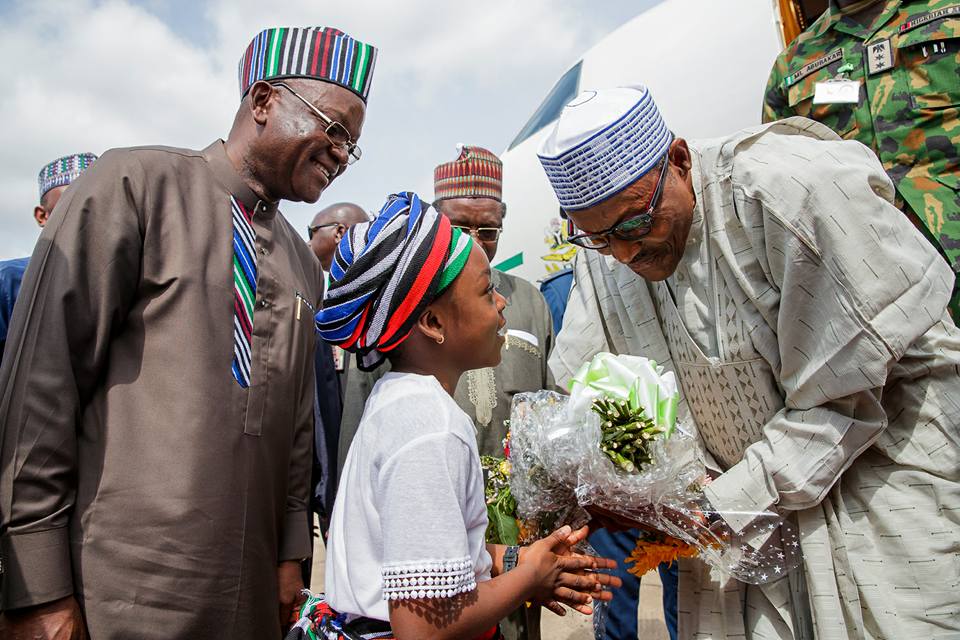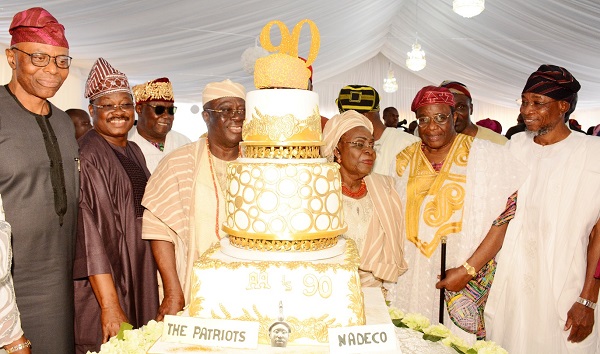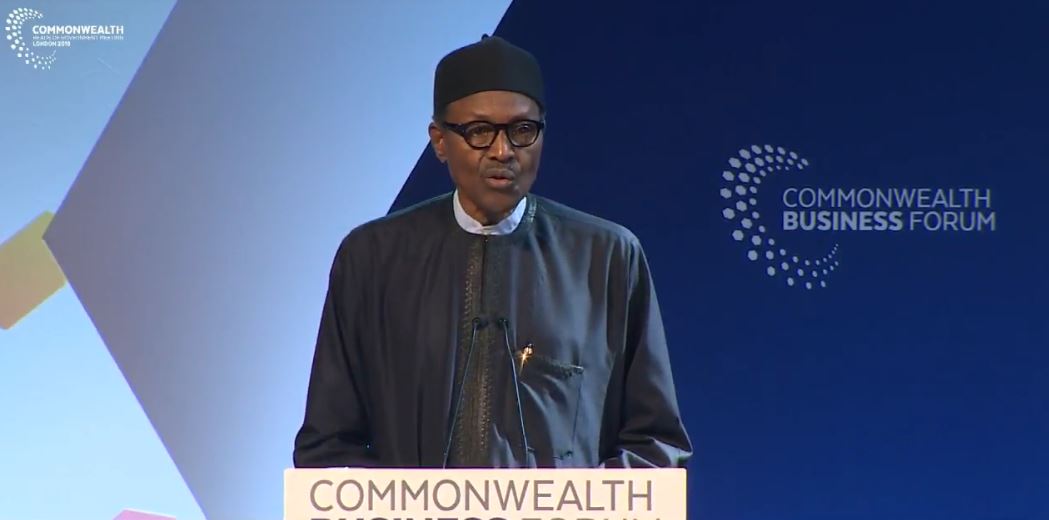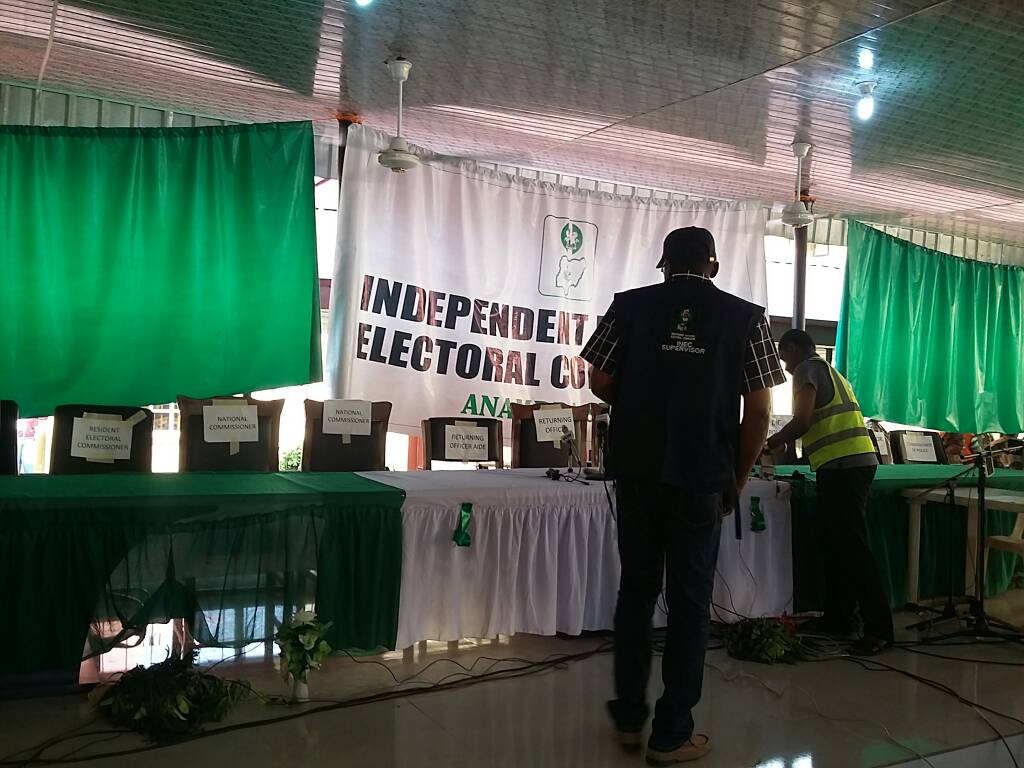Nigeria of the 1950s and early 1960s had very many interesting personalities. Western Region had its fair share of such. One of them was a man named Suara Sobo (Sobo pronounced as Sorbor). He was a prominent transporter who held the transportation industry of the time by its jugular. An Ibadan man of the Opo Yeosa clan who lived in an area now known as Ring Road, Suara Sobo was wealthy and had a fleet of lorries in his pool. As a trade logo, Suara Sobo’s lorries always had monkeys chained to their entrance which excited and attracted passengers to them. However, his lorries soon acquired very unflattering typecast.
Any passenger who boarded them was literally embarking on a journey that had no certain time or terminal point of dismebarkment as the lorry could be arrested for having no particulars and the inappropriate conducts of the drivers and conductors, which led to road accidents, were legendary. The otherwise pleasurable ride with a monkey on board to marvel at its close resemblance of man could turn awry. It thus became a peculiar refrain in the Western Region to say a man had entered Suara Sobo’s lorry, an equivalent of today’s One Chancelingo among youths. Odolaye Aremu, then Ibadan-based Ilorin-born dadakuwada musician, once sang of the untimely passage of Suara Sobo, years after. At a celebration in his house, said Odolaye, Suara Sobo had hosted the crème de la crème of Ibadan where roast mutton and turkey flesh were feasted upon. People were shocked when, six days later, Suara Sobo’s sudden death was announced to the world.
The anecdote of Suara Sobo may be necessary here. It may be pretty difficult to know what goes on in the mind of President Muhammadu Buhari. Much more difficult is it to download what drives him; what defines him and what he thinks of the other person. The President has one major ambivalent quality which prevents anyone observing him through the media to know his persona – he is terribly introverted. If the Nigerian society were as sophisticated as the west, getting to know the essential Buhari would be easier. The American public today has a triple advantage – it has the benefit of being a free society, an extrovert as president and the benefit of technology to help it un-bowel the mind of the character in the White House. For Nigeria, it is triple assaults: Buhari’s private and public life is guarded like the sentries in hell guard Lucifer, he speaks seldom and runs a double-speak government where his minders tell the world divergent lies without synchro, which, in any case, are far away from the composition of their principal’s mind. Thus, we are left to guess who really Buhari is.
The few snippets available to the public about the person of Buhari are very disgusting. In 1978, while he was the Minister of Petroleum under General Olusegun Obasanjo, he was embroiled in a N2.8 million oil money scandal. The military however gave him a clean bill of health. During his time as a military dictator, the bits were indeed really very frightening. We have Tunde Thompson and Nduka Irabor as examples. Lean as a cowpea tree but with shining epaulettes on his square shoulders, his first press briefing as military Head of State was a fiasco. Insouciant at what the public may think, when asked by the press if he would tamper with press freedom, he answered in the affirmative. For the months he sat in the saddle, Buhari ruled Nigeria with an iron fist of cudgel and scorpion, like the biblical Rehoboam. There was little or no public window into his private life, except that, upon his return from the detention slammed on him by his dictator successor, Ibrahim Babangida, he sacked the dotting mother of his children unceremoniously. Since then, very little was in the public domain about him. There was however this public perception of him as a very straightforward man.
Advertisement
As head of General Sani Abacha’s Petroleum Development Trust Fund, (PTDF) this public perception availed him. Though many of the projects constructed under the PTDF were marred in allegations of favouritism, nepotism and ethnic preferences of contractors, he still wore the lapel of honour on his shirt sleeve. Global condemnation of Abacha’s primitive heists notwithstanding, Buhari still chose to whitewash Sani’s apparels. He told the world that the Kanuri dictator never stole a dime of Nigerian patrimony. He is yet to recant this blind and I dare say silly, tribal defence of his fellow northerner.
His foray into politics opened the blind a little into his grim persona. As the Presidential candidate of the Congress for Progressive Change, (CPC) in the 2011 election, while the rat-a-tat firepower of Boko Haram raged and its hirelings detonated explosives which killed his kinsmen in their hundreds, Buhari said, by attacking Boko Haram, Goodluck Jonathan was attacking the North. He shocked Nigerians in 2012 while speaking in Hausa and addressing members of the CPC from Niger State, who had paid him a courtesy visit in Kaduna. Claiming that he was quoting Professor Ango Abdullahi, Buhari identified three types of insurgents in the country. According to him, the Federal Government, led by Jonathan, topped the list, followed by those he described as “criminals who steal and kill Nigerians in the name of religion” and the third was the insurgent group led by late Muhammed Yusufu. Buhari then decorated the final cake with an icing of crimson: “God willing, by 2015, something will happen. They either conduct a free and fair election or they go a very disgraceful way. If what happened in 2011 (alleged rigging) should again happen in 2015, by the grace of God, the dog and the baboon would all be soaked in blood.’’
Buhari had earlier demonstrated clearly that he barely tolerated anyone outside his stock. While late Alhaji Lam Adesina was governor of Oyo State, Buhari, in company with Alhaji Ahmed Joda, Buba Marwa and others, he had stormed the state. Fulani Bororo cattle rearers, who have been held as a menace to farmers in the northern part of the state, had clashed with natives who apparently clearly routed them in a scuffle. On a courtesy visit to Adesina, Buhari had been quoted to have lamented how “your people killed my people.” Adesina, who was known never to suffer fools gladly, had pilloried the former Head of State for this clearly sectional statement, stating that as a former Head of State, he ought to have spoken as a nationalist. A couple of years ago, Buhari was also quoted to have told some Islamic brethren that he was committed to ensuring that Sharia was spread to all the nooks and crannies of Nigeria, a statement reminiscent of that incandescent and self-serving decree attributed to Uthman Danfodio.
Advertisement
In a saner clime, all the above should be enough to carve the effigy of what a Buhari presidency held in store for Nigerians. In the build up to the 2015 elections, the All Progressives Congress (APC) leaders, among whom Bola Tinubu was a kingpin of renown, deodorized Buhari, latching on his alleged non-corruptive credentials as Nigeria’s hope of redemption from Jonathan’s Ali Baba and the Thieves government. We would yet know that the personal integrity of a leader doesn’t approximate national integrity nor does it put food on a nation’s table. As lacking mental depth as Jonathan was reputed to be, he was greatly pained that APC leaders filibustered on a proposed televised debate with Buhari. A debate would have shown Nigerians what a Suara Sobo lorry Nigerians were about to board.
The last three years but one month of his presidency have shown Buhari very clearly. Still terse in communication and disdainful of the other person, these attributes jutted out glaringly in the last three years. He demurred for months in appointing ministers, which economic experts said was one of the incubating indices of Nigeria’s subsequent collapse into reception and when he eventually did appoint his ministers, the credentials of the appointees could not be compared with that of Goodluck Jonathan’s. Things went bad on the economic front. The president’s bad health, shortly after he was assumption of office, literally halted the administration of Nigeria and the emergence of some hawks nicknamed cabal who are said to run his government rammed in the final nails. Things went so bad on the economic front that many Nigerians anguished at their choice of Buhari while thousands of jobs were lost in the process.
Corruption and security, two key prongs on which Buhari canvassed for votes, have not fared better. Like Jonathan, a curious kidnap of girls of a secondary school at Dapchi was inflicted on the nation by Boko Haram and a more curious release of the girls occurred weeks later. Even though his personal frugal and perhaps incorruptible nature have yet to be impeached, Buhari’s tendency to condone corrupt people who make a ring round him is legendary. With little or no conviction secured of corruption cases in the last three years, Nigerians have concluded that the Buhari government is merely fighting those who, in its very limited horizon, are corrupt; rather than fighting corruption.
If the Buhari government ever attracts investors to Nigeria, he shovels them away with the other finger. Each time he travels out of the country, he does so much damage to the name of the country in an inexplicable way. The latest is his claim on a trip to the UK that the youth of his country is afflicted by indolence and a get-rich-quick blight.
Advertisement
The Buhari government’s I-don’t-care attitude to hundreds of Nigerians killed by Fulani herdsmen and its rationalization of their deaths are another sore point of his government. Now that he has expressed the desire to contest again in 2019, with the above as backcloth, it may be a fitting description to call the government he has run and which he will run if voted into office again as akin to the Suara Sobo lorry and Nigerians, his captive passengers.
90 minutes at NASS’ Entebbe
Now that we have recovered from the palpable shock that a band of unarmed thugs invaded the Nigerian National Assembly (NASS) and bolted away with the legislative authority, the mace, one hopes that Nigerians have recovered their thinking cap lost in the process of our national bewilderment. Last Wednesday, three thugs were reported to have invaded the Upper Chamber, at about the same time that the suspended pro-President Muhammadu Buhari Senator, Ovie Omo-Agege, walked in. Not only did the thugs bolt away with the mace, (it was eventually recovered where it was dumped) national outcry was diverted towards Omo-Agege who was promptly arrested but released later by the police.
Now, let us assume for a fleeting moment that the shame of this action on Nigeria never came; that parliamentarians from neighbouring Ghana did not witness Nigeria’s moment of national shame, but how did this shameful drama happen? What sorry pass won’t Nigeria sink into?
Advertisement
This writer has been to National Assembly a number of times and knows how fortress-like its security is. From the first sentry to the last, you would be accosted by about four posts where your entry would be subjected to rigorous scrutiny of policemen, DSS officials and the like. Did these sentries go on a journey like the biblical Baal, god of the Sidonians? How come some urchins not reported to be armed were able to dislodge well-armed officers patrolling Nigeria’s national parliament? After striking and snatching the mace, the three thugs were said to have jumped into a Sports Utility Van and sped off. Who opened the gates for them? How come three thugs overpowered scores of armed sentries?
If you ask me, I think Bukola Saraki, Ike Ekweremadu and the parliamentarians should look outside the parliament for the marionette who fiddled with the strings on the laughable Wednesday. It is not on record that those sentries are constitutionally under the legislature but the executive. The culprit of the invasion is resident outside. But methinks that the invasion is very amateurish and points to the fact that even when it plans to dissemble, the Nigerian state is incompetent on all fronts. Except if the aim of the invasion was to entertain Nigerians to some idiotic comedy, the Villa’s apparatchik ought to have read Ninety Minutes at Entebbe, the story of how Israeli police rescued 102 of their hostages held by Idi Amin Dada of Uganda. Operation Entebbe, also known as Operation Thunderbolt, was a code name for a successful counter-terrorist hostage-rescue mission which was carried out by Israel Defense Forces (IDF) commandos at the Entebbe Airport, Uganda on July 4, 1976. If the Villa read this book, we would have got a more robust script that would engage future state attempts to force its way through some uncoordinated barbarians.
Advertisement
Views expressed by contributors are strictly personal and not of TheCable.

